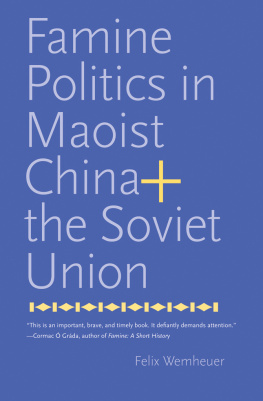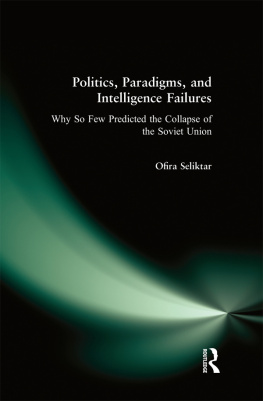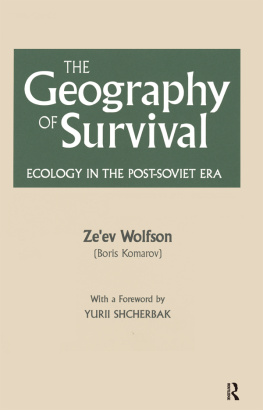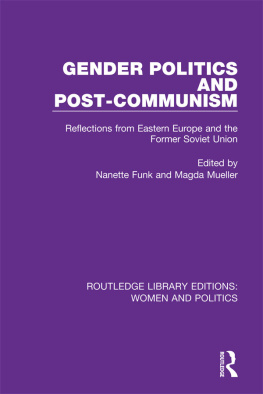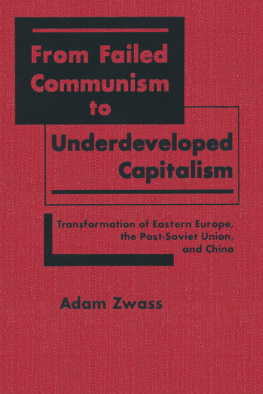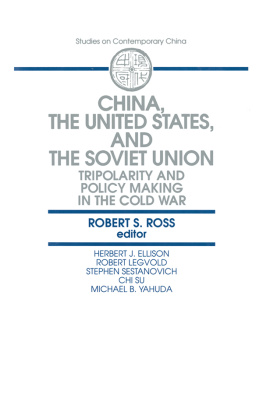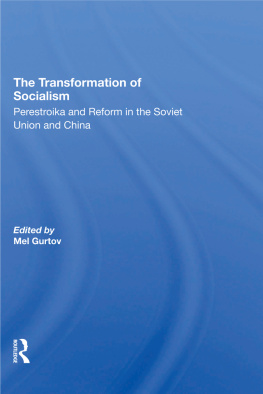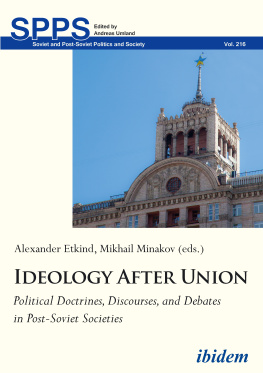Wemheuer - Famine Politics in Maoist China and the Soviet Union
Here you can read online Wemheuer - Famine Politics in Maoist China and the Soviet Union full text of the book (entire story) in english for free. Download pdf and epub, get meaning, cover and reviews about this ebook. year: 2014, publisher: Yale University Press, genre: Politics. Description of the work, (preface) as well as reviews are available. Best literature library LitArk.com created for fans of good reading and offers a wide selection of genres:
Romance novel
Science fiction
Adventure
Detective
Science
History
Home and family
Prose
Art
Politics
Computer
Non-fiction
Religion
Business
Children
Humor
Choose a favorite category and find really read worthwhile books. Enjoy immersion in the world of imagination, feel the emotions of the characters or learn something new for yourself, make an fascinating discovery.
Famine Politics in Maoist China and the Soviet Union: summary, description and annotation
We offer to read an annotation, description, summary or preface (depends on what the author of the book "Famine Politics in Maoist China and the Soviet Union" wrote himself). If you haven't found the necessary information about the book — write in the comments, we will try to find it.
Wemheuer: author's other books
Who wrote Famine Politics in Maoist China and the Soviet Union? Find out the surname, the name of the author of the book and a list of all author's works by series.
Famine Politics in Maoist China and the Soviet Union — read online for free the complete book (whole text) full work
Below is the text of the book, divided by pages. System saving the place of the last page read, allows you to conveniently read the book "Famine Politics in Maoist China and the Soviet Union" online for free, without having to search again every time where you left off. Put a bookmark, and you can go to the page where you finished reading at any time.
Font size:
Interval:
Bookmark:
YALE AGRARIAN STUDIES SERIES
James C. Scott, series editor
The Agrarian Studies Series at Yale University Press seeks to publish outstanding and original interdisciplinary work on agriculture and rural societyfor any period, in any location. Works of daring that question existing paradigms and fill abstract categories with the lived experience of rural people are especially encouraged.
JAMES C. SCOTT, Series Editor
James C. Scott, Seeing Like a State: How Certain Schemes to Improve the Human Condition Have Failed
Steve Striffler, Chicken: The Dangerous Transformation of Americas Favorite Food
Alissa Hamilton, Squeezed: What You Dont Know About Orange Juice
James C. Scott, The Art of Not Being Governed: An Anarchist History of Upland Southeast Asia
Benjamin R. Cohen, Notes from the Ground: Science, Soil, and Society in the American Countryside
Parker Shipton, Credit Between Cultures: Farmers, Financiers, and Misunderstanding in Africa
Sara M. Gregg, Managing the Mountains: Land Use Planning, the New Deal, and the Creation of a Federal Landscape in Appalachia
Michael R. Dove, The Banana Tree at the Gate: A History of Marginal Peoples and Global Markets in Borneo
Edwin C. Hagenstein, Sara M. Gregg, and Brian Donahue, eds., American Georgics: Writings on Farming, Culture, and the Land
Timothy Pachirat, Every Twelve Seconds: Industrialized Slaughter and the Politics of Sight
Andrew Sluyter, Black Ranching Frontiers: African Cattle Herders of the Atlantic World, 15001900
Brian Gareau, From Precaution to Profit: Contemporary Challenges to Environmental Protection in the Montreal Protocol
Kuntala Lahiri-Dutt and Gopa Samanta, Dancing with the River: People and Life on the Chars of South Asia
Alon Tal, All the Trees of the Forest: Israels Woodlands from the Bible to the Present
Felix Wemheuer, Famine Politics in Maoist China and the Soviet Union
For a complete list of titles in the Yale Agrarian Studies Series, visit www.yalebooks.com.
FAMINE POLITICS IN MAOIST CHINA AND THE SOVIET UNION
FELIX WEMHEUER
Yale UNIVERSITY PRESS
New Haven and London
Copyright 2014 by Yale University.
All rights reserved.
This book may not be reproduced, in whole or in part, including illustrations, in any form (beyond that copying permitted by Sections 107 and 108 of the U.S. Copyright Law and except by reviewers for the public press), without written permission from the publishers.
Yale University Press books may be purchased in quantity for educational, business, or promotional use. For information, please e-mail (U.K. office).
Set in Sabon type by Newgen North America.
Printed in the United States of America.
Library of Congress Cataloging-in-Publication Data
Wemheuer, Felix.
Famine politics in Maoist China and the Soviet Union / Felix Wemheuer.
pages cm.(Yale agrarian studies series)
Includes bibliographical references and index.
ISBN 978-0-300-19581-1 (hardcover : alk. paper)
1. FaminesChina. 2. FaminesSoviet Union. 3. ChinaEconomic policy19491976. 4. Soviet UnionEconomic policy. I. Title. II. Series: Yale agrarian studies.
HC79.F3W457 2014
363.80951'09045dc23
2014001973
A catalogue record for this book is available from the British Library.
This paper meets the requirements of ANSI/NISO Z39.481992 (Permanence of Paper).
10 9 8 7 6 5 4 3 2 1
For Xiaoqing and Meylin
Tsze-kung asked about government. The Master said, The requisites of government are that there be sufficiency of food, sufficiency of military equipment, and the confidence of the people in their ruler.
Tsze-kung said, If it cannot be helped, and one of these must be dispensed with, which of the three should be foregone first? The military equipment, said the Master.
Tsze-kung again asked, If it cannot be helped, and one of the remaining two must be dispensed with, which of them should be foregone? The Master answered, Part with the food. From of old, death has been the lot of all men; but if the people have no faith in their rulers, there is no standing for the State.
CONFUCIUS
Contents
Acknowledgments
Famine Politics in Maoist China and the Soviet Union grows out of over six years of research, as well as many international conferences and field trips to China. With a scholarship from the Austrian Science Fund, I was able to carry out research for eighteen months as a visiting scholar at the Fairbank Center for Chinese Studies at Harvard University (20082010). I owe particular thanks to Professor Susanne Weigelin-Schwiedrzik of the University of Vienna, who supported my leave from my position at the Institute of East Asian Studies and who over the years has given deeply appreciated assistance and encouragement to my research and academic career. Numerous others have supported me in writing this book, providing useful feedback at various stages of the project. I would like to thank Thomas Bernstein of Columbia University; Jeremy Brown of Simon Fraser University; Cao Shuji of Shanghai Jiaotong Daxue; Chen Yixin of the University of North Carolina, Wilmington; Kathryn Edgerton-Tarpley of San Diego State University; Gao Wangling of Renmin University; Wendy Z. Goldman of Carnegie Mellon University; Andrea Janku of SOAS, London; Andreas Kappeler of the University of Vienna; William Kirby of Harvard University; Hiroaki Kuromiya of Indiana University, Bloomington; Ruth Libbey, Cambridge (MA); Kimberley Manning of Concordia University, Montreal; Gleb Netchvolodov, Tartu; Cormac Grda of University College Dublin; James C. Scott of Yale University; Steve Smith of Oxford University; Ralph Thaxton of Brandeis University; Hannah Untersweg of the University of Vienna; Stephen Wheatcroft of the University of Melbourne; and Xin Yi of the Peoples University of China. On a final note, I would like to express my warmest and deepest appreciation to my wife, Li Xiaoqing, for all her encouragement and support over the years.
All maps and graphs have been drawn by Gleb Netchvolodov. Some of the materials were published earlier in modified form. A part of were published in Felix Wemheuer, Regime Changes of Memories: Creating the Official History of the Ukrainian and Chinese Famines under State Socialism and after the Cold War, Kritika: Explorations in Russian and Eurasian History 10, no. 1 (2009): 3159.
Abbreviations and Measurements
Abbreviations
| CCP | Chinese Communist Party |
| CPSU | Communist Party of the Soviet Union |
| GDR | German Democratic Republic |
| GMD | Guomindang (Nationalist Party) |
| NBCK | Neibu Cankao (Internal References) |
| NEP | New Economic Policy |
| PLA | Peoples Liberation Army |
| PRC | Peoples Republic of China |
| RMRB | Renmin Ribao (Peoples Daily) |
| TAR | Tibet Autonomous Region |
Measurements
1 jin = 500 grams
1 mu = 1/15 hectare
1 ton = 1,000 kg (metric ton)
FAMINE POLITICS IN MAOIST CHINA AND THE SOVIET UNION
Introduction
DURING THE TWENTIETH CENTURY more people died of famine than in any other century in human history. larger history of Socialist revolutions in agrarian empires. In this book, I will mainly compare the Soviet famine of 19311933 with the Great Leap famine because of their similarities.
Famines under socialism were quite different from epidemic hunger in Africa today. The times of mass starvation were relatively short, but the famines were characterized by high excess mortality and lowered birthrates.
Next pageFont size:
Interval:
Bookmark:
Similar books «Famine Politics in Maoist China and the Soviet Union»
Look at similar books to Famine Politics in Maoist China and the Soviet Union. We have selected literature similar in name and meaning in the hope of providing readers with more options to find new, interesting, not yet read works.
Discussion, reviews of the book Famine Politics in Maoist China and the Soviet Union and just readers' own opinions. Leave your comments, write what you think about the work, its meaning or the main characters. Specify what exactly you liked and what you didn't like, and why you think so.

